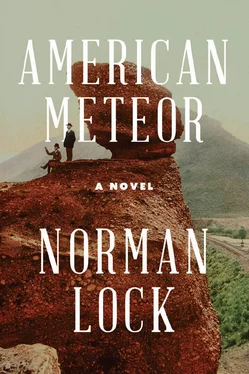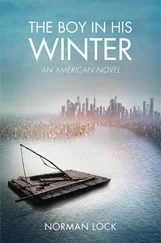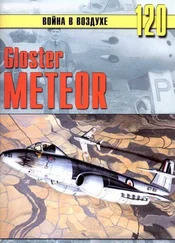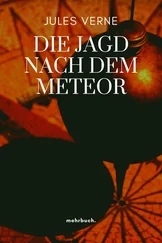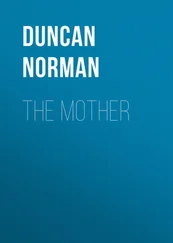“Tomorrow, Moran, we’ll be famous,” Custer boasted from the saddle. “My heroism and your pictures of Custer with his boot on the throat of the enemy — famous!”
The fringes of his buckskins riffled in the breeze, and his yellow hair hung down in curls from under a wide-brimmed hat while Custer posed for my camera. I hadn’t yet made up a plate — and never would for him again— but I pretended to take his picture. It would have been his last. Then he rode off, up Medicine Tail Coulee, toward the riverbank where Sitting Bull, Crazy Horse, Red Hawk, and an infuriated multitude waited — armed with hatchets, bows and arrows, coup sticks, and quirts, not only them, but also with new repeating rifles. In his fabulous egotism, Custer had left the Gatling guns and sabers on board the supply boat, the steamer Far West , moored on the Yellowstone. He thought he’d have no need of them. He thought that Custer would be enough. He believed in himself, which is the undoing of all who hope to climb to immortal fame over the dead bodies of inferiors. In his mind, the name Custer rhymed with Caesar.
The Indians took just as long as it takes a hungry man to eat a meal to overrun us. I was seized by an excitement unlike any I’ve ever known. It was unnatural. Ferocious. Inhuman. I threw away my camera, pulled a carbine from a dead soldier’s stubborn grip, and rushed after the general, who was standing among a knot of panicked skirmishers, firing his six-guns at the war-whooping and — painted Indians flying past them on their ponies. Like a distracted devil, I screamed and pulled my hair — nearly insane with the thought that one of the braves would cut Custer down before I could reach him. I’ve always credited temporary insanity with my delivery from certain death that day: Indians respect and admire lunatics, believing them vessels of the unseen.
My resentment and simmering hatred for Custer had caught up with me and then jumped ahead, leaving me to scramble madly after it. The mountain of bones picked clean of flesh by his appetite and that of so very many others — animal and Indian bones, Chinese and Mexican bones — all at once they enjoined me with the peremptoriness of a holy commandment to vengeance. I was thirty yards from Custer — maybe forty, no more than that— when I saw a Cheyenne warrior take aim along the barrel of a Winchester. Custer was busy fending off a renegade’s lance; he would have fallen from the Cheyenne’s bullet. I sighted my carbine and fired — that’s wrong: I didn’t aim; I couldn’t have done anything so deliberate in my besotted state of mind. I fired at the behest of a violent history. A man immersed in that history, it lent me its murderous instinct. I fired the rife without a thought and hit the general in the temple. By the time I’d clambered up the hill — Custer’s, they call it now — its white defenders were dead. I grabbed a Springfield from one of them and sent a second bullet through the bastard’s heart.
“God damn you to hell!” I screamed, but he was already out of range of my voice.
Two women came and broke Custer’s eardrums with an awl because the words he had spoken to Chief Stone Forehead after the slaughter by the Washita — Custer’s promise that he would never again make war on the Sioux — had run out of his ears like water, as if they had been sealed with wax.
An Arapaho warrior clubbed me with a stone hatchet, and I fell swiftly into oblivion. If I thought anything as I suffered Death to walk out from its vantage to take my pulse, it was that I would soon be parting with my scalp. But when I shrugged back into consciousness, it wasn’t Death who loomed over me, but Crazy Horse, more fearsome than any Catholic harvester of souls. He was taking the measure of my heart with a gaze that seemed almost to heat my blood — to make it boil up like coffee in a pot left too long on the stove. He was the most extraordinary-looking man I ever laid eye on. I assert it not as an opinion but as a fact impossible to gainsay, because he would not allow his picture to be taken and none ever was, except once by — I almost said “accident,” but I’m not sure that the universe allows accidents. If ever a man — white, red, black, or yellow — had the fat light seeping from his bones, it was Crazy Horse. He rode to battle in nothing but a breechcloth, so his bones were distinguishable underneath the lean and muscled flesh. I ought to have feared him; any other white man would have. But I didn’t, even though he didn’t look kindly at me. He stared at me as a naturalist would at a never-before-seen insect. I didn’t squirm, much less whimper or beg for my life. My courage — it was hardly that, but let the word stand for what my behavior in his presence and during the battle resembled — my courage, then, and my having murdered Custer — they perplexed him.
“Why did you kill the Yellow Hair?” he asked. I suppose I must have been the most extraordinary white man he’d ever laid his two eyes on, in spite of my puniness.
“Because he killed too many to be permitted to live.”
“Too many what?”
“Men. Soldiers. Indians. Women, children, old men. Buffalo. Black Kettle’s nine-hundred ponies by the Washita. His dogs.”
I spoke in the Lakota tongue, or he spoke in English, or we spoke together some sensual language known by animals or else in the mineral one of rocks — for the Indians believe even they are alive. Goddamn it, Jay, I’m not Francis Parkman or even Ned Buntline! What happened to me by the Little Bighorn River was mystical as well as murderous. It’s impossible to understand it in any prosaic way.
“Are you one of those white people who wish to save Indians by bringing them the comforts of your Jesus?”
It was trick question, and I knew it. Instead of answering, I recited a line of Whitman’s: “The red aborigines,/ Leaving natural breaths, sounds of rain and wind, calls as of birds and animals in the woods, syllabled to us for names,/Okonee, Koosa, Ottawa, Monongahela, Sauk, Natchez, Chattahoochee, Kaqueta, Oronoco,/ Wabash, Miami, Saginaw, Chippewa, Oshkosh, Walla-Walla,/ Leaving such to the States they melt, they depart, charging the water and the land with names.”
“Is that written in your Bible?”
“In Leaves of Grass .”
Crazy Horse nodded; he had already glimpsed the future and had seen there the end of his people’s dominion over the Great Plains, at Wounded Knee, which would coincide with the end of Whitman’s great poem.
“I have heard of this book,” he said. He bent forward, lowering his face toward me; and for a moment, I thought he meant to kiss me, as Whitman had done in Camden, sensing in his humiliated body a coming night that might be other than mystical. Our two gazes entangled — Crazy Horse’s with mine and mine with his. I descried intimations of a truth that I couldn’t grasp.
Crazy Horse said, “Remember this moment well.”
“I will,” I said solemnly, like a godfather who has been entrusted with a childhood not his own.
“I’m going to spare your life so that you’ll never be free of me.”
It was then I began to be afraid.
How curious! how real!
— Walt Whitman, Starting from Paumanok
Lincoln, Nebraska, 1901
I did three good things in my life: I killed Custer; I rescued a child, although it was too late to save her; and I refused to sell my photograph of Crazy Horse, even when I went bankrupt and lost the studio. I could have named my price. What wouldn’t The Atlantic Monthly, The New York Daily Tribune, Harper’s Weekly , or Whitman’s old paper the Brooklyn Daily Eagle have paid for the only picture of Crazy Horse in existence? It would have made me rich — richer than most of the prospectors who went looking for gold and lost their shirts instead.
Читать дальше
